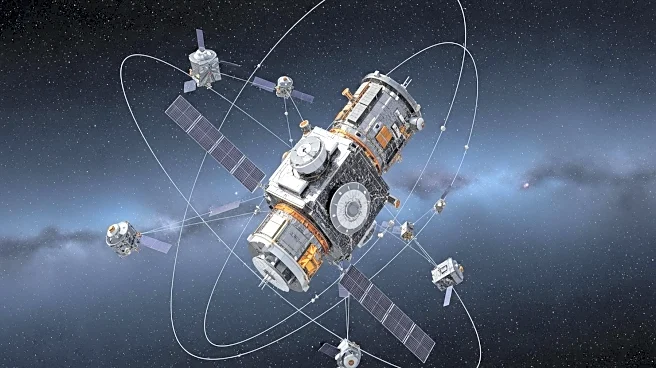What's Happening?
The small geostationary satellite manufacturing market is experiencing a divergence in strategies regarding vertical integration. Companies like Switzerland's Swissto12 are expanding downstream by acquiring assets to enhance their product offerings, while others like Finland's ReOrbit focus on a software-only approach, leaving hardware to third parties. Swissto12's acquisition of Ku-band antenna assets aims to fast-track development and serve a broader customer base. In contrast, ReOrbit emphasizes sovereignty and flexibility, allowing customers to dictate their supply chains. Meanwhile, AscendArc, a U.S.-based startup, is integrating novel payload designs to enhance satellite capabilities.
Why It's Important?
The varying strategies in the small GEO satellite market reflect the diverse needs and priorities of companies in the space industry. Vertical integration can offer companies greater control over their supply chains and product development, potentially leading to faster innovation and cost efficiencies. However, a software-focused approach, as seen with ReOrbit, can provide flexibility and cater to customers seeking sovereignty and independence. These strategic choices have significant implications for the competitive landscape and the ability of companies to meet the evolving demands of government and commercial customers.
What's Next?
As the small GEO satellite market continues to evolve, companies will need to carefully assess their strategies to remain competitive. The choice between vertical integration and a software-only approach will depend on factors such as customer needs, market trends, and technological advancements. Companies like Swissto12 and ReOrbit will likely continue to refine their strategies to capitalize on emerging opportunities and address challenges in the space industry. The success of these strategies will be closely watched by industry stakeholders, including investors, customers, and competitors.
Beyond the Headlines
The small GEO satellite market is part of a broader trend towards increased commercialization and innovation in the space industry. The strategic choices made by companies in this market can have far-reaching implications for the development of space-based communications and the ability to address global challenges such as connectivity and data security. As the industry continues to grow, ethical and regulatory considerations will also play a critical role in shaping the future of small GEO satellite manufacturing and deployment.









